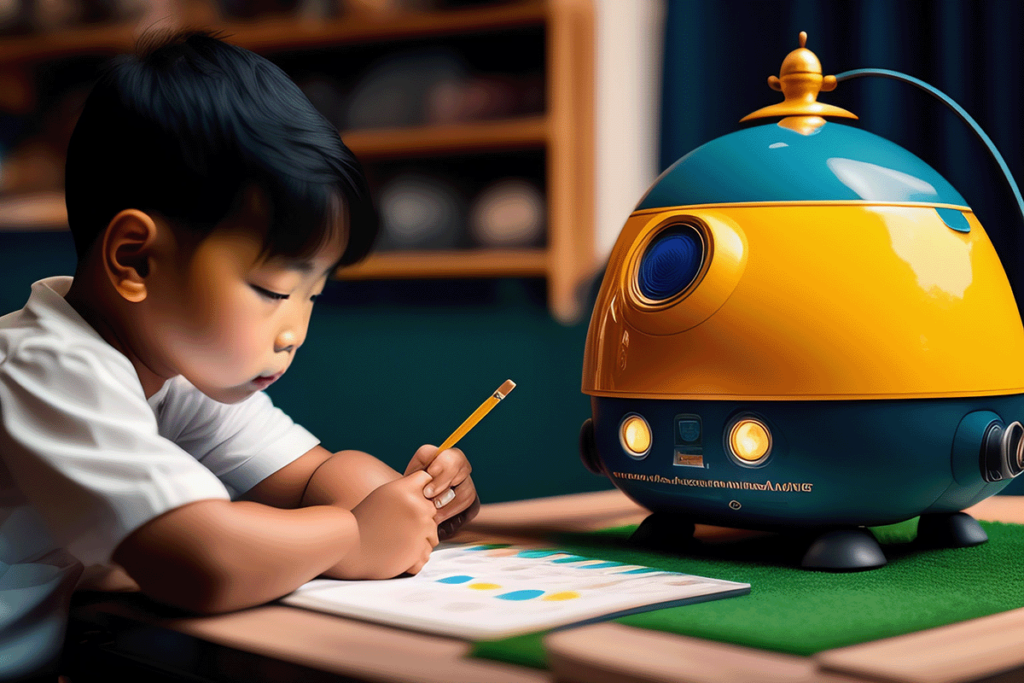In the ever-evolving landscape of education, one can’t help but notice the significant impact of Artificial Intelligence (AI). As we delve into the possibilities of AI in education, it becomes evident that this groundbreaking technology has the potential to reshape the way we teach and learn. In this comprehensive guide, we explore the multifaceted role of AI in education and how it is revolutionizing the traditional methods of instruction.
Introduction
Education is the cornerstone of society’s progress, and it’s imperative to keep up with the changing times. Traditional teaching methods, while effective to some extent, are often constrained by limitations that hinder the full realization of students’ potential. AI, with its ability to process vast amounts of data, adapt to individual learning needs, and enhance educational outcomes, is heralding a new era in the field of learning.
The Role of AI in Personalized Learning
Tailored Learning Experiences
AI algorithms are adept at analyzing student performance and tailoring learning experiences to individual needs. Through continuous assessment and real-time feedback, AI-driven educational platforms can identify a student’s strengths and weaknesses, allowing for a personalized curriculum. This personalized approach ensures that no student is left behind, promoting better understanding and retention of knowledge.
Adaptive Learning
Adaptive learning platforms powered by AI can adjust the difficulty level of content based on a student’s progress. This means that students who grasp concepts quickly can be challenged with more advanced material, while those who need more time receive additional support. This adaptability maximizes the efficiency of the learning process.
The Benefits of AI in Education
Improved Engagement
AI can make learning more engaging and interactive. Virtual tutors, chatbots, and gamified lessons captivate students’ attention and keep them motivated to learn. Moreover, AI can analyze students’ engagement patterns and suggest adjustments to the curriculum to maintain high levels of interest.
Enhanced Assessment
Traditional exams and assessments have their limitations. AI-powered assessment tools can provide a more comprehensive understanding of a student’s knowledge and skills. They can evaluate not only the final answers but also the thought processes and reasoning behind them, leading to more accurate assessments.
Overcoming Educational Barriers
Accessibility and Inclusivity
AI can break down barriers to education by offering accessible resources to students with disabilities. Text-to-speech and speech-to-text technologies, for example, enable students with visual or hearing impairments to access educational content seamlessly.
Bridging the Educational Gap
AI can help bridge the educational gap by providing quality education to remote or underserved areas. Online courses and AI-driven tutoring can reach students who lack access to traditional educational institutions.
Implementing AI in Educational Institutions
Training Educators
To fully harness the potential of AI in education, educators must be equipped with the necessary skills. Professional development programs should be designed to train teachers in integrating AI tools and technologies into their teaching methods effectively.
As AI collects vast amounts of data, ensuring the privacy and security of students’ information is paramount. Educational institutions must implement robust data protection measures to safeguard sensitive data from breaches.
Conclusion
The integration of AI into education is not a mere trend but a transformation that promises to make education more effective, engaging, and accessible to all. The benefits of personalized learning, improved engagement, and overcoming educational barriers are just the tip of the iceberg. As educational institutions adapt and embrace AI technologies, they pave the way for a brighter, more inclusive future of learning.
In this digital age, where information is readily available, staying ahead in the world of education is crucial. Embracing AI as a tool to enhance learning is not just a choice; it’s a necessity. As we look ahead, the collaboration between educators and AI will continue to redefine the possibilities of education, preparing students for a future that demands adaptability and innovation.

1 thought on “The Future of Education: Embracing AI for Enhanced Learning”